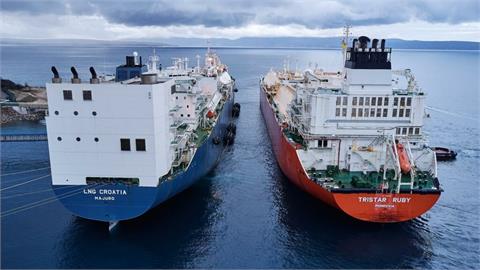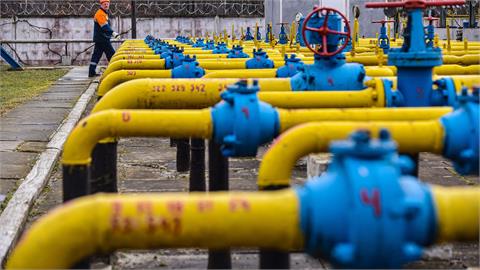European Union countries approved a law on Monday to impose methane emissions limits on Europe's oil and gas imports from 2030, pressuring international suppliers to cut leaks of the potent greenhouse gas.
Methane is the main component of the natural gas countries burn in power plants and to heat homes. It is also the second-biggest cause of climate change after carbon dioxide, and fuels global warming when it escapes into the atmosphere from leaky oil and gas pipelines and infrastructure.
Ministers from EU countries gave their governments' final approval to the policy at a meeting in Brussels, meaning it can now enter into force. Only Hungary voted against it.
From 2030, the EU will impose "maximum methane intensity values" on fossil fuels placed on the European market. The European Commission will design the exact methane limits by that date.
Importers of oil and gas that flout the limit could face financial penalties.
"This import standard could potentially reduce global methane emissions from oil and gas by a third," said Alessia Virone, EU affairs director at the non-profit Clean Air Task Force, noting the EU's status as the world's biggest oil and gas importer.
The rules are likely to hit major gas suppliers such as the U.S., Algeria and Russia. Moscow slashed deliveries to Europe since its 2022 invasion of Ukraine and has since been replaced as Europe's biggest pipeline gas supplier by Norway, whose supply has among the world's lowest methane intensity.
The Biden administration - which alongside the EU has rallied countries to cut methane emissions by 30% by 2030 to limit climate change - has welcomed the EU's methane law.
The U.S. last year set out its own rules requiring oil firms to limit their methane emissions.
A spokesperson for the International Association of Oil & Gas Producers said it was concerned the EU may not recognise other jurisdictions' existing methane standards as complying with its own - and failure to do this could jeopardise security of energy supplies.
The EU will also require European producers to regularly check their operations for leaks of methane, and bans most cases of flaring and venting, when oil and gas companies intentionally burn off or release unwanted methane into the atmosphere.
(Reuters, May 27, 2024)



